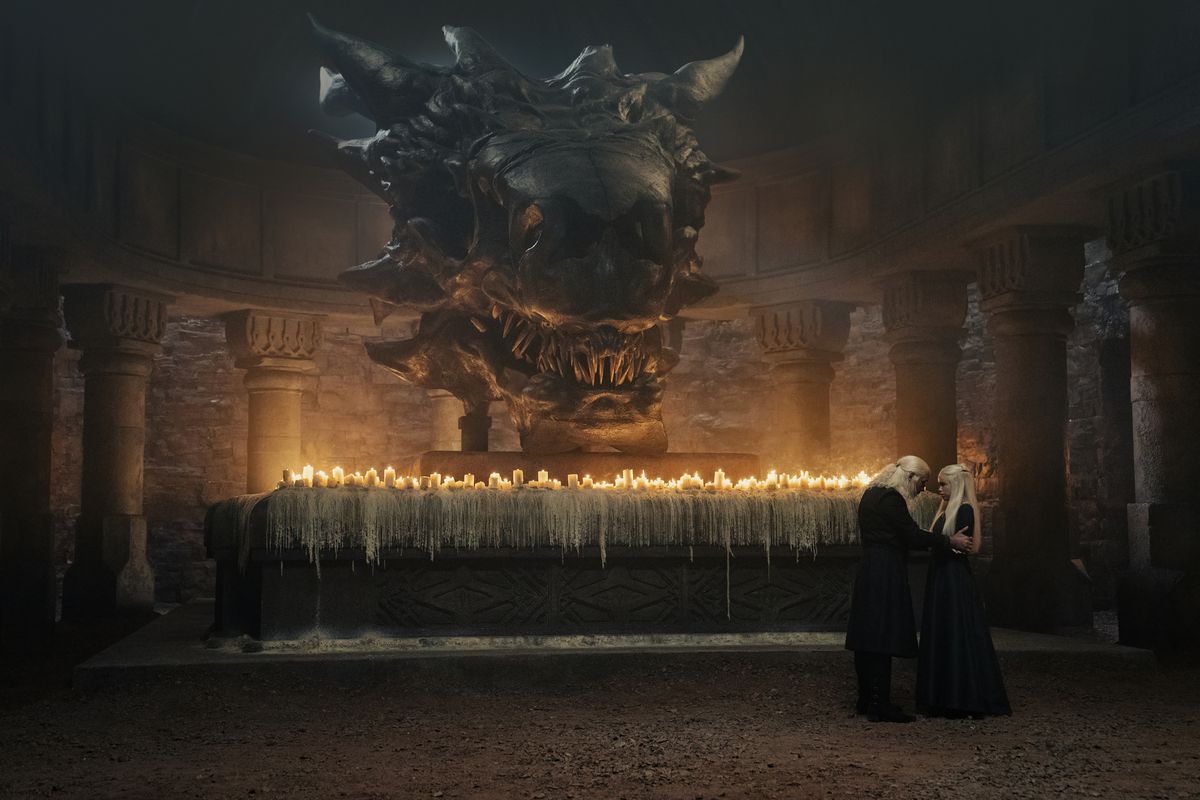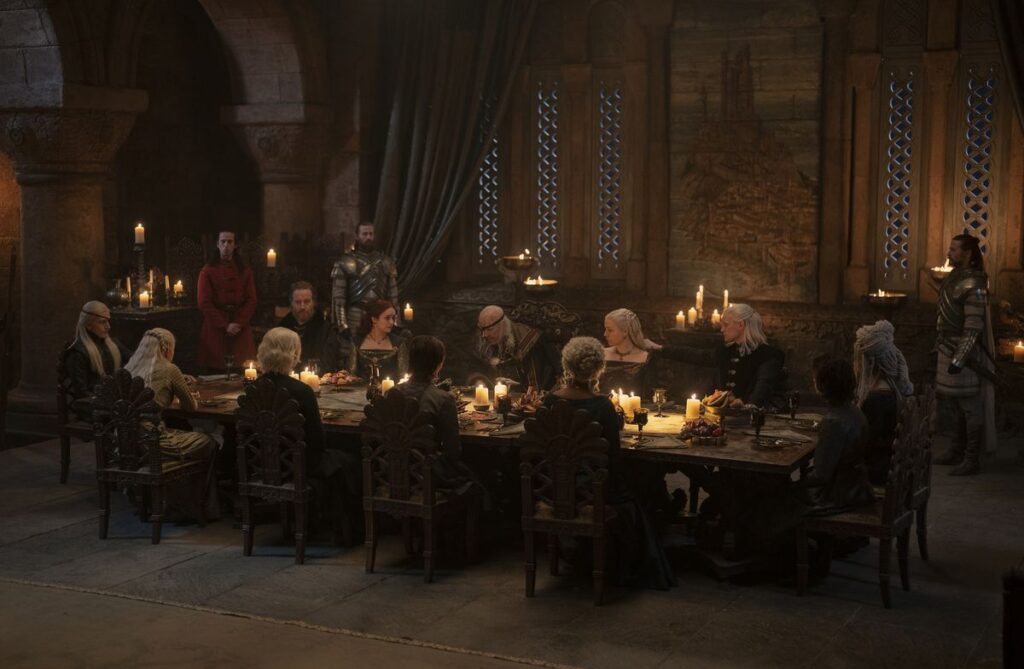The more House of the Dragon dives into the mysteries of the Targaryens’ past, the less it seems to take place in the same universe as Game of Thrones. While the series may be a prequel to Game of Thrones, it’s becoming clear that the new show’s creative team is comfortable diverging from the original, concluded HBO series in favor of a story that’s still ongoing in George R.R. Martin’s A Song of Ice and Fire book series. By Martin’s own account, his books are setting up a longer and much more complicated ending.
[Ed. note: This post contains spoilers for Game of Thrones, all of A Song of Ice and Fire, and the first eight episodes of House of the Dragon.]
The division between House of the Dragon and Game of Thrones is more about themes and feelings than it is about plot, at least right now. In House of the Dragon episode 8, “The Lord of the Tides,” the show delved even deeper into Aegon the Conqueror’s royal prophecy, which suggests that a Targaryen has to sit on the Iron Throne to save Westeros from a frozen and deadly threat that waits to the north.
As much as this prophecy holds obvious importance for A Song of Ice and Fire fans, who know where the story is going, and that The Others are on their way, its impact on House of the Dragon is much more immediate. The prophecy is an animating force for the series’ characters. Each person that interacts with it does so in a completely different manner, letting the ideas of fate, fortune, and destiny shape their world and decisions in unique ways.
Photo: Ollie Upton/HBO
For Viserys, the prophecy is a final legacy that must be passed on, the duty of a king to guard his realm and people. For Rhaenyra, it’s a lifelong sword of Damocles, a burden she secretly carries as she moves toward the Iron Throne. For Alicent — and maybe for her children — it’s a misunderstood warning, a last-minute sign that Viserys may have changed his mind on who the realm really needs to be ruled by after his death.
Long before this prophecy manifests in Westeros, it’s guiding the hands of everyone who hears it and leading them to shape the events of history. While Game of Thrones never managed this kind of complicated relationship with the visions in its story, the idea that a premonition could shape action is key to Martin’s books. In A Song of Ice and Fire, as in many fantasy series, it often matters less whether a prophecy is true, and more how the threats or promises it brings guide the decisions of the people it’s about.
But the relationship between House of the Dragon and its predecessor show is more than just thematically tenuous at this point. According to House of the Dragon showrunner Ryan Condal, the addition of Aegon’s prophecy is one that came from Martin himself. Given how many different times Martin has written versions of this prophecy (or similar ones) into A Song of Ice and Fire, his doubling down here certainly seems important. And if it’s important, then it must mean that the series’ ending can’t be the same as the one from Game of Thrones — where it hardly mattered at all.

Photo: Ollie Upton/HBO
The invasion of the White Walkers in HBO’s series was a brief affair, and mostly amounted to an episode-length battle at Winterfell in the dead of Westeros’ coldest and darkest season. Few main characters were ever put in real danger; the south was never involved; and the largest, most existential threat in the series was dispatched with just a jab from a dagger that we now know once belonged to Viserys. It was anticlimactic to say the least, but House of the Dragon gives us our latest example that it’s also probably not the fate meant for the conflict in the books.
After all, if the only way to save the Seven Kingdoms is for a Targaryen to unite them and sit on the Iron Throne, then things have to change, since the throne and most of Westeros didn’t play a part in the Long Night, and no Targaryen really sat the Iron Throne. Instead, it seems that this is pointing toward an eventual future where Jon Snow is revealed as a Targaryen and winds up ruling the kingdom, or perhaps Daenerys could end up with a firm enough grasp on reality to deliver the realm from The Others before things go wrong. Or maybe even someone else. Either way, it seems like the end of Martin’s saga will be different from the events we saw in HBO’s Game of Thrones, and that the Long Night in the books could be a lot longer and more bleak.
There’s no way to know for sure exactly how Martin’s book series will end, or what elements it will or won’t change from the HBO series. But at the very least, it seems that House of the Dragon is heading more toward the ending fans expect from A Song of Ice and Fire than the one that disappointed many viewers back in 2019. It also doesn’t hurt to know that House of the Dragon is getting as many episodes as it needs to finish its story, unlike its predecessor.

